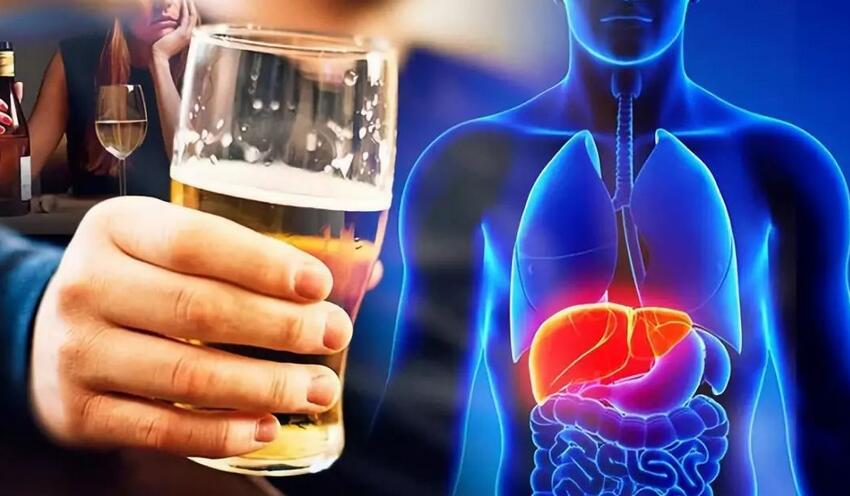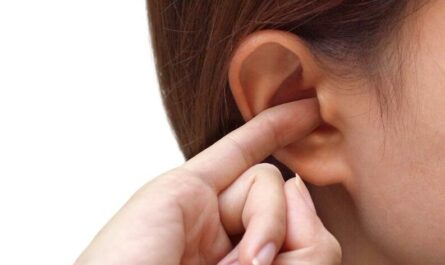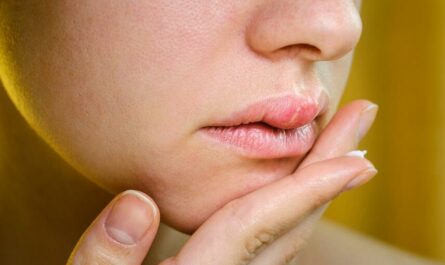The liver is a vital organ responsible for numerous complex functions in the body, including detoxification. However, excessive alcohol consumption can place a significant burden on the liver, leading to various health complications. This article will provide you with practical strategies on how to detox your liver from alcohol with natural remedies.
The Function of the Liver
The liver is a vital organ located in the upper right side of the abdomen. It performs numerous complex functions that are essential for overall health. One of its primary functions is detoxification.
The liver plays a crucial role in removing toxins and harmful substances from the body. It metabolizes and neutralizes various substances, including alcohol, drugs, and environmental toxins. This makes them less harmful and more easily eliminated.
In addition to detoxification, the liver has several other important functions. It produces bile, a substance necessary for the digestion and absorption of fats. Bile is stored in the gallbladder and released into the small intestine when needed.
The liver also stores essential vitamins and minerals, such as vitamins A, D, E, K, and B12, iron, and copper. These stored nutrients can be released into the bloodstream as needed. Furthermore, the liver is involved in the metabolism of carbohydrates, proteins, and fats.

How Alcohol Affects the Liver?
When you consume alcohol, the liver prioritizes alcohol metabolism over other functions. Excessive alcohol intake can lead to inflammation, oxidative stress, and the accumulation of fat in the liver cells. Over time, these conditions can progress to more severe liver diseases such as fatty liver, alcoholic hepatitis, and cirrhosis.
Alcohol metabolism occurs in several stages. When you drink alcohol, it is rapidly absorbed into the bloodstream from the stomach and intestines.
The liver then begins metabolizing alcohol by producing an enzyme called alcohol dehydrogenase. This enzyme converts alcohol into acetaldehyde, a highly toxic substance. Acetaldehyde is further broken down into acetate. It is then converted into carbon dioxide and water for elimination from the body.
However, excessive alcohol consumption can overwhelm the liver’s ability to metabolize alcohol effectively. This can lead to the accumulation of acetaldehyde in the liver, causing oxidative stress and damage to liver cells. Over time, this damage can result in inflammation, scarring, and ultimately, liver diseases like cirrhosis.
Signs You Need a Liver Detox
Recognizing the signs that indicate the need for a liver detox can help you take proactive steps to support your liver health. Here are some common signs that may indicate the need for a liver detox:
- Fatigue: Persistent fatigue and lack of energy can be a sign of liver stress. When the liver is overburdened with toxins, it may struggle to perform its functions efficiently. This leads to feelings of fatigue and low energy levels.
- Abdominal discomfort: If you experience frequent abdominal pain, bloating, or swelling, it could be a sign of liver dysfunction. The liver is located in the upper right side of the abdomen. When it is under stress, it can cause discomfort in that area.
- Jaundice: Yellowing of the skin and eyes, known as jaundice, is a common sign of liver dysfunction. It occurs when the liver is unable to properly process bilirubin.
- Dark urine: Dark-colored urine, particularly if it is consistently darker than usual, can indicate liver stress. Bilirubin also can be excreted in the urine, causing it to appear darker.
- Loss of appetite and weight loss: If you experience a sudden loss of appetite and unexplained weight loss, it could be a sign of liver dysfunction.
- Digestive issues: Digestive problems such as nausea, vomiting, diarrhea, or constipation can be linked to liver dysfunction. When the liver is compromised, it can impact digestion and cause gastrointestinal issues.
- Skin issues: Skin problems such as itchiness, dryness, or the development of skin rashes can be a sign of liver stress. The liver plays a role in filtering toxins from the bloodstream. When it is overwhelmed, toxins can accumulate and manifest as skin issues.
It’s important to note that these signs and symptoms can also be indicative of other health conditions. If you experience any of these symptoms, it’s recommended to consult a healthcare professional.

Preparing for an Alcohol Liver Detox
Before starting any detox program, it’s crucial to consult with a healthcare professional. This is important especially if you have pre-existing liver conditions or are taking medications.
Your healthcare provider will take into consideration your medical history and liver function test results. Based on this information, they can guide you on the most appropriate detoxification plan for your specific needs.
How to Detox Your Liver from Alcohol?
Liver detoxification helps reduce the burden on the liver, allowing it to regenerate and repair itself. By adopting a liver detox program, you can support the liver’s natural detoxification processes, improve overall liver function, and decrease the risk of liver-related complications.
Detoxification not only helps eliminate accumulated toxins but also promotes healthy liver cell regeneration. It allows the liver to recover from oxidative stress and inflammation, reducing the risk of long-term liver damage.
Here are some strategies you can incorporate into your lifestyle to support liver detoxification:
1. Reduce or eliminate alcohol consumption
The first and most crucial step in liver detoxification is to reduce or eliminate alcohol consumption. Gradually decreasing your alcohol intake can help minimize withdrawal symptoms and increase the likelihood of long-term success.
You can seek support from friends, and family, or support groups that can provide the necessary encouragement during this process. Reducing alcohol intake not only allows the liver to recover but also reduces the risk of further liver damage. Remember that even small amounts of alcohol can have a detrimental effect on the liver.
2. Adopt a balanced and nutritious diet
Eating a healthy and balanced diet is essential for supporting liver health and detoxification. Include plenty of fruits, vegetables, whole grains, lean proteins, and healthy fats in your meals. These nutrient-rich foods provide essential vitamins, minerals, antioxidants, and fiber that support liver function.
- Cruciferous vegetables: Broccoli, cauliflower, Brussels sprouts, and kale contain compounds that support liver detoxification enzymes. These vegetables are rich in antioxidants and fiber, which help eliminate toxins from the body.
- Fruits and berries: Berries, such as blueberries and strawberries, are high in antioxidants that help reduce inflammation and support liver health. Citrus fruits like oranges and lemons are rich in vitamin C, which aids in the production of liver detoxifying enzymes.
- Whole grains: Opt for whole grains like brown rice, quinoa, and whole wheat bread, which provide fiber and nutrients that support overall liver health.
- Lean proteins: Choose lean protein sources such as fish, poultry, tofu, and legumes, which provide essential amino acids needed for liver function and repair.
- Healthy fats: Include sources of healthy fats like avocados, nuts, seeds, and olive oil, which contain omega-3 fatty acids and antioxidants that help reduce inflammation in the liver.
3. Stay hydrated
Staying hydrated is essential for optimal liver function and detoxification. Water helps flush out toxins, supports digestion, and aids in transporting nutrients throughout the body. Aim to drink at least 8 glasses of water per day and limit your intake of sugary beverages and alcohol.
Proper hydration also helps maintain adequate blood volume, which allows the liver to effectively filter toxins from the bloodstream. Drinking enough water can also prevent dehydration. This is a condition that can strain the liver and hinder its detoxification processes.

4. Incorporate liver-friendly foods
Some foods have specific properties that support liver health and detoxification. Include the following foods in your diet:
- Garlic: Garlic contains sulfur compounds that activate liver enzymes responsible for detoxification. These compounds help eliminate toxins and support the liver’s natural detoxification processes.
- Turmeric: Curcumin, the active compound in turmeric, has powerful antioxidant and anti-inflammatory properties that can help protect the liver from alcohol-induced damage. It also aids in liver cell regeneration.
- Milk thistle: Milk thistle contains a flavonoid called silymarin, which has hepatoprotective properties. Silymarin has antioxidant and anti-inflammatory effects and may help protect liver cells from damage.
5. Engage in regular exercise
Regular physical activity can improve liver health by promoting weight loss, reducing inflammation, and improving insulin sensitivity. Exercise increases blood flow to the liver, which helps deliver nutrients and oxygen.
Aim for at least 150 minutes of moderate-intensity exercise per week, such as brisk walking, cycling, or swimming. Engaging in activities that will help you stay motivated and make physical activity a regular part of your routine.
6. Prioritizing Sleep and Stress Management
Adequate sleep and stress management are essential for liver health. Poor sleep quality and chronic stress can contribute to liver inflammation and impair its detoxification processes. Prioritize getting 7-9 hours of quality sleep per night and engage in activities that help reduce stress, such as meditation, yoga, or deep breathing exercises.
Sleep deprivation and chronic stress can lead to hormonal imbalances, increased inflammation, and oxidative stress. By prioritizing sleep and stress management, you can support your liver’s ability to effectively detoxify and regenerate.
7. Avoid exposure to toxins
To support your liver’s detoxification efforts, it’s important to minimize exposure to toxins in your environment. Avoid or limit contact with harmful substances such as cigarette smoke, pesticides, cleaning chemicals, and excessive alcohol consumption. Opt for natural and non-toxic alternatives whenever possible.
Cigarette smoke contains numerous toxic chemicals that can directly damage the liver. Pesticides and cleaning chemicals can also contribute to liver inflammation and impair its detoxification processes. Minimizing exposure to these toxins reduces the burden on the liver and allows it to focus on its primary functions.
8. Herbal Supplements and Vitamins
Certain herbal supplements and vitamins have shown promise in supporting liver health and detoxification. However, it’s important to consult with a healthcare professional before incorporating any supplements into your regimen. They can assess their safety, potential interactions with medications, and appropriate dosages for your specific needs.
Some supplements that may be beneficial for liver detoxification include:
- Milk thistle: Milk thistle contains a flavonoid called silymarin, which has antioxidant and anti-inflammatory properties that may protect the liver from damage caused by alcohol. It also supports liver cell regeneration and helps prevent the depletion of glutathione.
- Vitamin E: This vitamin has been shown to reduce inflammation and oxidative stress in the liver. It also supports liver cell regeneration and may help protect against liver damage caused by alcohol.
When choosing herbal supplements, opt for reputable brands and look for products that have been independently tested for quality and purity.
How Long Does It Take to Detox From Alcohol?
The time it takes to detox from alcohol can vary depending on various factors, including the severity of alcohol dependence, overall health, and individual circumstances.
In general, the acute withdrawal symptoms typically experienced during the initial stages of alcohol detox last for about a week. These symptoms may include tremors, anxiety, sweating, nausea, irritability, and insomnia.
After the initial withdrawal period, the body continues to eliminate alcohol and undergo healing processes. The length of time for detoxification of alcohol from the body varies depending on factors such as the severity, and overall health. In some cases, the detoxification process may take a few weeks to a month or longer.
Can liver damage from alcohol be reversed?
In the early stages, liver damage caused by alcohol can be reversed by adopting a healthy lifestyle and abstaining from alcohol. However, advanced stages of liver disease may require medical intervention and, in some cases, a liver transplant.
Are there any risks associated with liver detox?
Liver detoxification, when done properly and under medical supervision, is generally safe. However, detoxing too quickly or without professional guidance can lead to severe withdrawal symptoms, electrolyte imbalances, and other complications.
When to Seek Professional Help?
In some cases, a medical detox program may be necessary, especially if you have been a heavy and long-term alcohol user. If you are experiencing severe withdrawal symptoms or have a history of alcohol dependence, consult a healthcare professional for guidance.
Alcohol withdrawal can be a complex and potentially dangerous process, especially for individuals with a long history of heavy drinking. Symptoms such as tremors, hallucinations, seizures, and delirium tremens (DTs) may require immediate medical attention.
Conclusion
Detoxifying your liver from alcohol is an important step to improve your overall health. By adopting a comprehensive approach, you can support your liver’s natural detoxification processes and promote its long-term health. Remember to seek professional guidance, especially if you have pre-existing liver conditions or are undergoing alcohol withdrawal.






